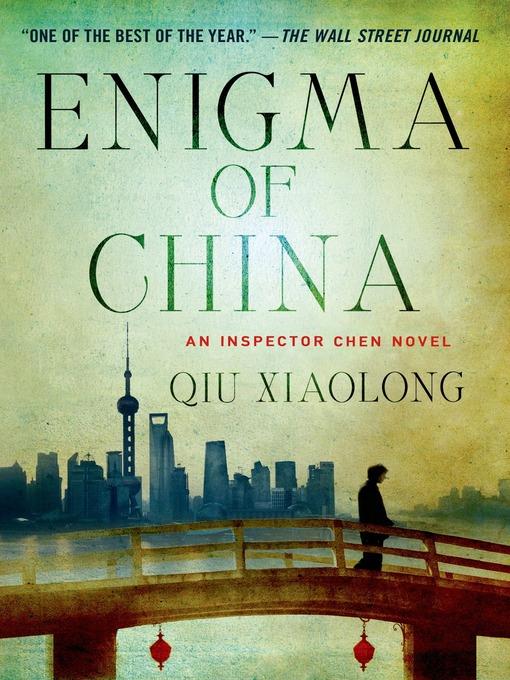
Enigma of China
Inspector Chen Cao Series, Book 8
کتاب های مرتبط
- اطلاعات
- نقد و بررسی
- دیدگاه کاربران
نقد و بررسی

Starred review from April 15, 2013
The dilemmas of being an ethical cop in a police state have rarely been as neatly delineated as in Qiu’s superb eighth novel featuring Chief Insp. Chen Cao of the Shanghai Police Bureau (after 2012’s Don’t Cry, Tai Lake). Chen—a poetry lover and a member of the Shanghai Communist Party Committee—helps look into the apparent suicide of Zhou Keng, the director of the city’s housing development committee, at the hotel where he was under extralegal detention. Zhou ostensibly hanged himself out of shame after a crowdsourced Internet investigation revealed his corruption, but Chen doubts the official story, especially after another suspicious death. All too aware of his country’s contradictions, Chen nods in agreement with a scholar who, in a “controversial yet permissible lecture,” refers to “things that are called socialist or Communist in our Party’s newspapers but are in practice actually capitalistic, primitive or crony capitalistic, and utterly materialistic.” This installment approaches the levels of Eliot Pattison and James Church’s similarly themed novels, and the series has gotten stronger with age.

July 1, 2013
Can Inspector Chen toe the Communist Party line and certify a suspicious death as a suicide? As he listens to a lecture at the Shanghai Writers' Association in which scholar Yao Ji deplores the "moral bankruptcy" of modern China, esteemed poet and police detective Chen Cao again notes the incongruity and delicacy of his job. Matters like these are much on his mind when Chen is called to help investigate the death of Zhou Keng, the director of the Shanghai Housing Development Committee, who's recently fallen under an ethical cloud. Zhou has been "under detention" for weeks in the luxe Moller Villa Hotel. His death by hanging has been judged a suicide, and Chen's been called in to confirm this party ruling even though Inspector Liao, the head of the homicide squad, and his assistant, veteran detective Wei, are also working the case. Chen and Wei are greeted at the hotel by a pair of party officials, Jiang and Liu, who barely let them work in peace. Although these bureaucrats are anxious to close the case, Chen and Wei find many troubling inconsistencies, like the fact that Zhou had taken sleeping pills on the night of his death. Chen's Internet search for more about the controversial Zhou reveals mainly that information about him has been blocked. When a colleague is run down in a suspicious incident, Chen knows what he must do. In his ninth Inspector Chen novel (Don't Cry, Tai Lake, 2012, etc.), Xiaolong again uses a mystery to focus a large and nuanced portrait of contemporary China.
COPYRIGHT(2013) Kirkus Reviews, ALL RIGHTS RESERVED.

June 1, 2013
Shanghai Inspector Chen won't take the easy way out and sign off on an apparent suicide of a high-profile figure. The poet cop returns for his eighth case (after Don't Cry, Tai Lake).
Copyright 2013 Library Journal, LLC Used with permission.

May 1, 2013
Chief Inspector Chen Cao of the Shanghai Police wanted to be a poet in college but was state-assigned upon graduation to the police bureau. He is, by definition, a man at war with himself, a poet caught within the constraints of the party. (Chen will remind fans of the late Stuart Kaminsky's Inspector Rostnikov of the Moscow Police mysteries.) This series brilliantly portrays Chen's predicament and his maneuvers to both work within the system and subvert it. The prod to Chen's conscience this time comes from party orders to sign off on the death of the son of a major party member as a suicide, when Chen's instinct is that he may have been murdered. The man (head of the Shanghai Housing Development Committee) was outed by netizens who investigated his corrupt practices through the Internet, starting with a photo of one very expensive pack of cigarettes. In addition to being a wonderful character study and surprise-packed mystery, Qiu's latest is a many-faceted study of contemporary China.(Reprinted with permission of Booklist, copyright 2013, American Library Association.)

























دیدگاه کاربران